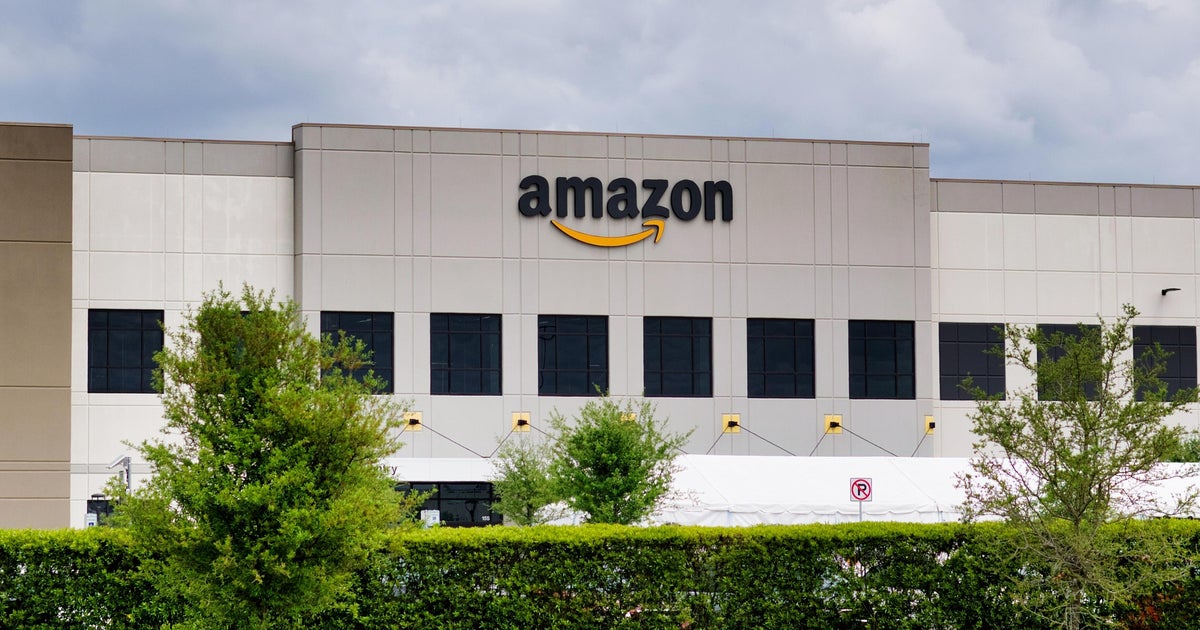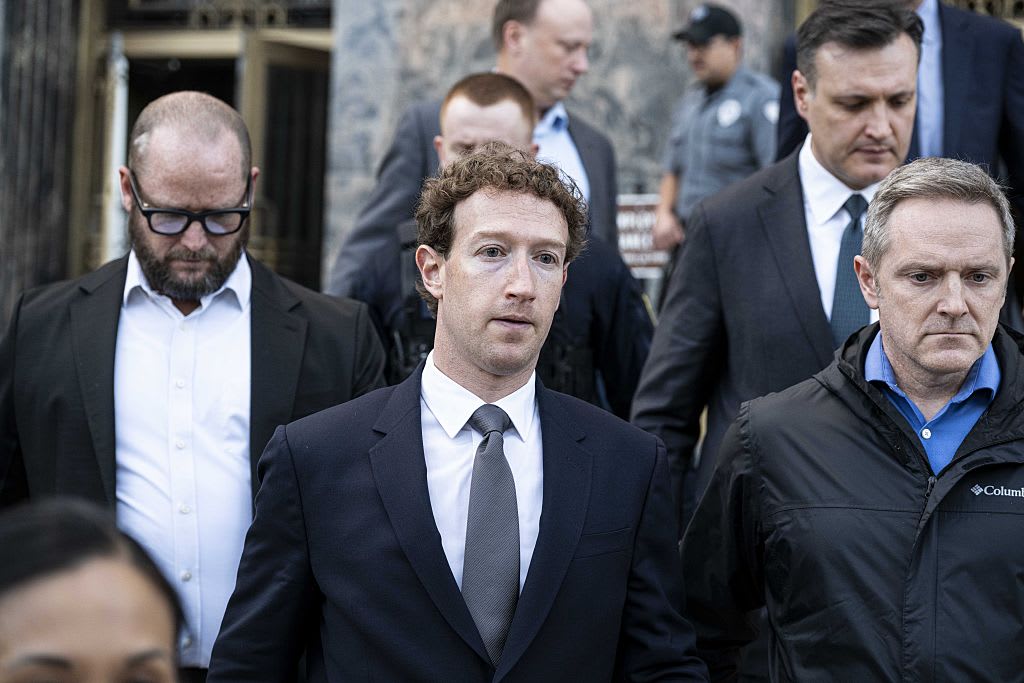Federal government and 46 states file antitrust suit seeking to split up Facebook
The federal government and 46 state attorneys general are suing Facebook, accusing the social media giant of using illegal tactics to maintain its dominance.
The states' lawsuit, led by New York Attorney General Letitia James, alleges that Facebook squashed potential rivals by buying up smaller competitors and closing off its platform to developers of apps it perceived as a threat. In the process, it weakened privacy protections for its users, she said.
"For nearly a decade, Facebook used its dominance and monopoly power to crush smaller rivals, at the expense of users," James said in a press conference on Wednesday. "No company should have this much unchecked power over our personal information and our social interactions."
The suit is filed on behalf of 46 U.S. states, the District of Columbia and Guam. Alabama, Georgia, South Carolina and South Dakota did not join.
The Federal Trade Commission filed a parallel lawsuit Wednesday. Both suits are asking the courts to force Facebook to spin off Instagram and WhatsApp, as well as to seek government approval for future mergers.
Focus on Instagram and WhatsApp deals
Both lawsuits cite Facebook's 2012 purchase of Instagram for $1 billion and a $19 billion deal for WhatsApp in 2014 as examples of its efforts to eliminate competitors. Those acquisitions of fast-growing but unprofitable startups let Facebook solidify its social media dominance while depriving users of privacy-focused alternatives, prosecutors allege.
"After identifying two significant competitive threats to its dominant position — Instagram and WhatsApp — Facebook moved to squelch those threats by buying the companies, reflecting CEO Mark Zuckerberg's view, expressed in a 2008 email, that 'it is better to buy than compete,'" the FTC said in its suit. "To further entrench its position, Facebook has also imposed anticompetitive conditions that restricted access to its valuable platform — conditions that Facebook personnel recognized as 'anti user[,]' 'hypocritical' in light of Facebook's purported mission of enabling sharing, and a signal that 'we're scared that we can't compete on our own merits.'"
The states' lawsuit quotes from internal Facebook discussions that reveal an obsession with losing users to competing apps. CEO Mark Zuckerberg told investors that mobile apps like Instagram offer features that Facebook doesn't have, which create "ways for those apps to replace us," according to the suit. The day that Facebook acquired Instagram, the lawsuit alleges that Zuckerberg sent the following email to a Facebook designer: "I remember your internal post about how Instagram was our threat and not Google+. You were basically right. One thing about startups though is you can often acquire them."
The company took a similar approach to WhatsApp, the suit alleges. In April 2012, shortly after Facebook purchased Instagram, Zuckerberg wrote: "I actually think that messaging is the single most important app on anyone's phone. It may not be the biggest business, but it is almost certainly by far the most used app, and therefore it's a critical strategic point for us," the lawsuit says."Since we bought Instagram (and extended the close date!), I now feel like we're ahead in photos but falling increasingly behind in messages," Zuckerberg continued, according to the suit.
For Facebook, the coordinated federal and state lawsuits represent the most aggressive legal action against the company to date by government authorities, culminating a bipartisan campaign to rein in big technology companies. It's the second time in two months that the government has moved against a tech giant.
In October, the Department of Justice filed an antitrust suit against Google, accusing the search giant of exercising monopoly power. Republicans in Congress and President Donald Trump have also sought to roll back a 25-year-old law that protects internet companies from liability for users' posts.
Facebook fires back
Although it remains to be seen if the Biden administration is equally determined to wage what is sure to be a long legal campaign against Facebook, a sense that the social media company is too powerful has united some lawmakers and policymakers across the aisle.
Facebook maintains that it became the world's most widely used social networks by offering a superior product. In a statement, the company's general counsel, Jennifer Newstead, called the FTC's allegations "revisionist history" and pointed out that the government body previously cleared Facebook's purchases of Instagram and WhatsApp.
"Antitrust laws exist to protect consumers and promote innovation, not to punish successful businesses," the statement said. "The most important fact in this case, which the Commission does not mention in its 53-page complaint, is that it cleared these acquisitions years ago. The government now wants a do-over, sending a chilling warning to American business that no sale is ever final. People and small businesses don't choose to use Facebook's free services and advertising because they have to, they use them because our apps and services deliver the most value. We are going to vigorously defend people's ability to continue making that choice."
The company has denied charges that it's too large. At a Congressional hearing in July, Zuckerberg said Facebook has many competitors, including the smaller networks Twitter and TikTok, and pointed to the amount of money the company spends on new products as proof of the pressure it faces.
"[T]he intense competitive pressures we face push us to experiment with new ideas. We are always working to develop technologies that will change how people connect and communicate in the future, and we invest around $10 billion per year in research and development. We know that if we don't constantly keep improving, we will fall behind," he testified.
Facebook today counts 2.7 billion users and leverages access to their attention for its immensely profitable advertising business. The company took in nearly $70 billion in ad revenue last year. Investors value it at $800 billion.
A steep hill to climb
While public opinion has turned against tech giants, the government's attempt to break up the industry's largest player won't be easy, say industry watchers.
"While there is certainly merit to the FTC's allegations that Facebook has strengthened its competitive position through these acquisitions, we are skeptical that the FTC will prevail," Wedbush analyst Michael Pachter said in a note to investors Wednesday.
"Twitter (founded in 2006), Snap (founded in 2011) and TikTok (founded in 2016) have all thrived in spite of Facebook's alleged anti-competitive behavior," he added. "We are skeptical that a federal court will compel a divestiture, and equally skeptical that a divided Congress will pass a law that forces such a result."
Consumer advocates cheered the suit, and expressed hopes that it would lead to better privacy and choice for users of tech.
"It's time that the courts put an end to Big Tech's specious claim that its products are 'free,' so 'consumer welfare' is not infringed upon and the antitrust laws don't apply," Ed Mierzwinski, U.S. PIRG's senior director for federal consumer programs, said in a statement. "Actually, consumers pay with our data, through a Big Tech business model of constant corporate surveillance and manipulation."



